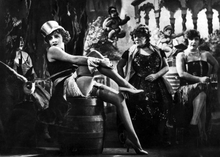
Helene Bertha Amalie "Leni" Riefenstahl was a German director, producer, screenwriter, editor, photographer and actress known for producing Nazi propaganda.

Hildegard Frieda Albertine Knef was a German actress, singer, and writer. She was billed in some English-language films as Hildegard Neff or Hildegarde Neff.
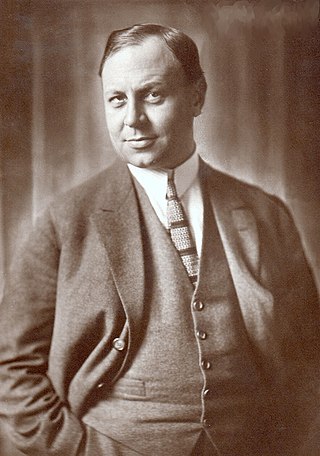
Emil Jannings was a Swiss-born German actor who was popular in Hollywood in the 1920s. He was the first recipient of the Academy Award for Best Actor for his roles in The Last Command and The Way of All Flesh. As of 2024, Jannings is the only German ever to have won the category.
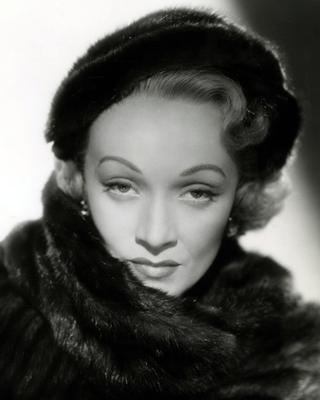
Marie Magdalene "Marlene" Dietrich was a German and American actress and singer whose career spanned from the 1910s to the 1980s.
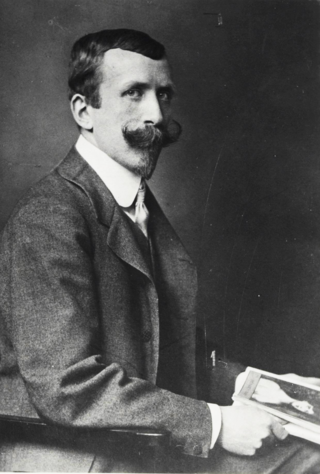
Luiz Heinrich Mann, best known as simply Heinrich Mann, was a German writer known for his socio-political novels. From 1930 until 1933, he was president of the fine poetry division of the Prussian Academy of Arts. His fierce criticism of the growing Fascism and Nazism forced him to flee Germany after the Nazis came to power during 1933. He was the elder brother of writer Thomas Mann.
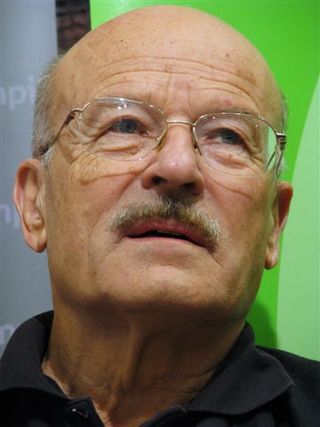
Volker Schlöndorff is a German film director, screenwriter and producer who has worked in Germany, France and the United States. He was a prominent member of the New German Cinema of the late 1960s and early 1970s.

Hans Fallada was a German writer of the first half of the 20th century. Some of his better known novels include Little Man, What Now? (1932) and Every Man Dies Alone (1947). His works belong predominantly to the New Objectivity literary style, a style associated with an emotionless reportage approach, with precision of detail, and a veneration for 'the fact'. Fallada's pseudonym derives from a combination of characters found in the Grimm's Fairy Tales: The titular protagonist of Hans in Luck, and Falada the magical talking horse in The Goose Girl.

Frank Paul Beyer was a German film director. In East Germany he was one of the most important film directors, working for the state film monopoly DEFA and directed films that dealt mostly with the Nazi era and contemporary East Germany. His film Trace of Stones was banned for 20 years in 1966 by the ruling SED. His 1975 film Jacob the Liar was the only East German film ever nominated for an Academy Award. After the fall of the Berlin Wall in 1989 until his death he mostly directed television films.

Margarethe von Trotta is a German film director, screenwriter, and actress. She has been referred to as a "leading force" of the New German Cinema movement. Von Trotta's extensive body of work has won awards internationally. She was married to and collaborated with director Volker Schlöndorff. Although they made a successful team, von Trotta felt she was seen as secondary to Schlöndorff. Subsequently, she established a solo career for herself and became "Germany's foremost female film director, who has offered the most sustained and successful female variant of Autorenkino in postwar German film history". Certain aspects of von Trotta's work have been compared to Ingmar Bergman's features from the 1960s and 1970s.

Beate Auguste Klarsfeld is a Franco-German journalist and Nazi hunter who, along with her French husband, Serge, became famous for their investigation and documentation of numerous Nazi war criminals, including Kurt Lischka, Alois Brunner, Klaus Barbie, Ernst Ehlers and Kurt Asche.
The Golden Twenties was a particular vibrant period in the history of Berlin. After the Greater Berlin Act, the city became the third largest municipality in the world and experienced its heyday as a major world city. It was known for its leadership roles in science, the humanities, art, music, film, architecture, higher education, government, diplomacy and industries.
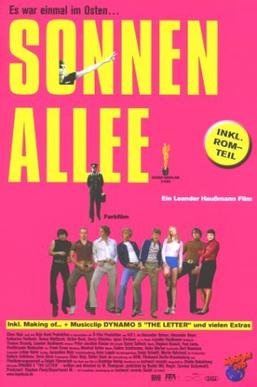
Sonnenallee is a 1999 German comedy film about life in East Berlin in the late 1970s. The movie was directed by Leander Haußmann. The film was released shortly before the corresponding novel, Am kürzeren Ende der Sonnenallee. Both the book and the screenplay were written by Thomas Brussig and while they are based on the same characters and setting, differ in storyline significantly. Both the movie and the book emphasize the importance of pop-art and in particular, pop music, for the youth of East Berlin. The Sonnenallee is an actual street in Berlin that was intersected by the border between East and West during the time of the Berlin Wall, although it bears little resemblance to the film set. Sonnenallee was broadcast in the Czech Republic under the title Eastie Boys.
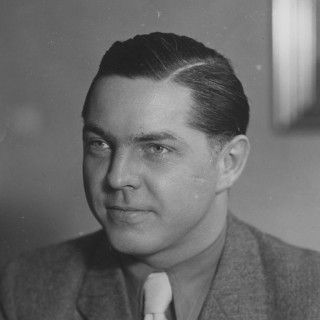
Fritz Hippler was a German filmmaker who ran the film department in the Propaganda Ministry of Nazi Germany, under Joseph Goebbels. He is best known as the director of the propaganda film Der Ewige Jude .
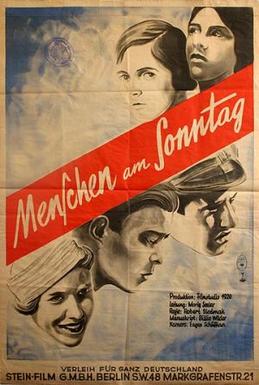
People on Sunday is a 1930 German silent drama film directed by Robert Siodmak and Edgar G. Ulmer from a screenplay by Robert and Curt Siodmak. Curt was the younger brother of Robert Siodmak. The film follows a group of residents of Berlin on a summer's day during the interwar period. Hailed as a work of genius, it is a pivotal film in the development of German cinema and Hollywood. The film features the talents of Eugen Schüfftan (cinematography), Billy Wilder (story) and Fred Zinnemann.

No Place to Go is a German black-and-white film released in April 2000, directed by Oskar Roehler, starring Hannelore Elsner, about a suicidal middle-aged writer travelling around Germany at a time of personal crisis.
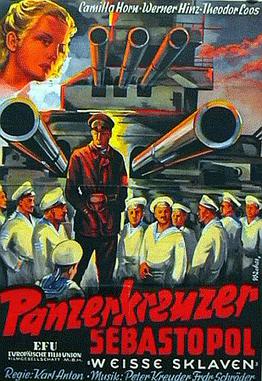
White Slaves is a 1937 German film directed by Karl Anton. It is also known by the longer title Panzerkreuzer Sebastopol: "Weisse Sklaven" and was later re-released as Rote Bestien.

Mark Reeder is a British musician and record producer. He grew up in Manchester, England. At a young age, Reeder became interested in progressive rock and especially early electronic music. In his teens, he worked in a small Virgin Records store in Manchester city centre.
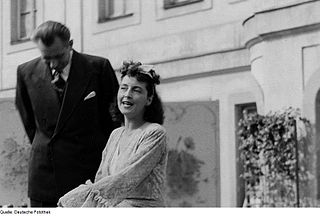
Dorothea Wieck, born Dora Bertha Olavia Wieck, was a German theatre and film actress.
Jutta Brückner is a German film director, screenwriter and film producer. She directed nine films between 1975 and 2005. Furthermore, she has written essays in film theory, film reviews and radio plays. She lives in Berlin and was Professor for narrative film at Berlin University of the Arts. She was the head of the jury at the 31st Berlin International Film Festival and is a member of multiple Film Juries and advisory committees.

Maria Forescu was an Austro-Hungarian-born Romanian opera singer and film actress. During the silent and talkies era of the German cinema, she appeared in several movies as a supporting actress. When Adolf Hitler came to power, Forescu, like other Jews of that period, was barred from her profession. Living undercover during the later years of World War II, she survived the Holocaust and died in 1947 in East Berlin.
